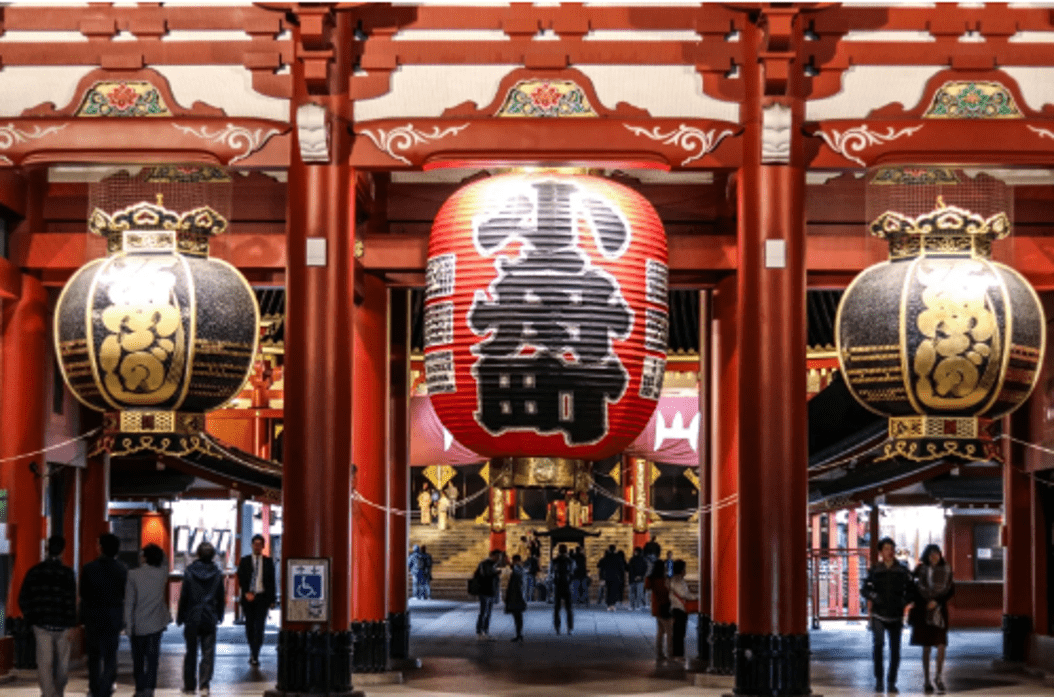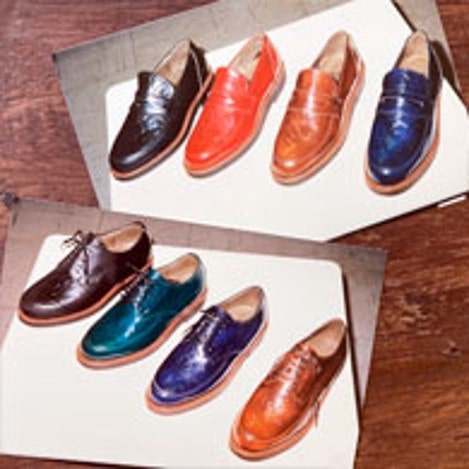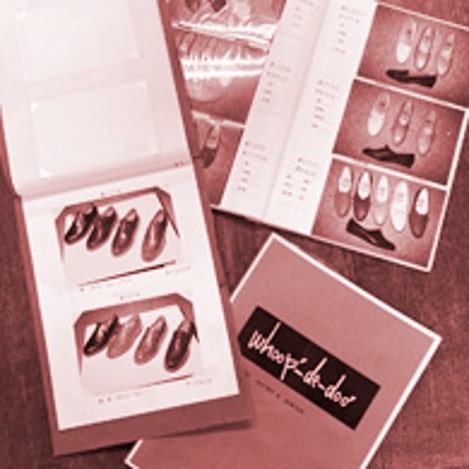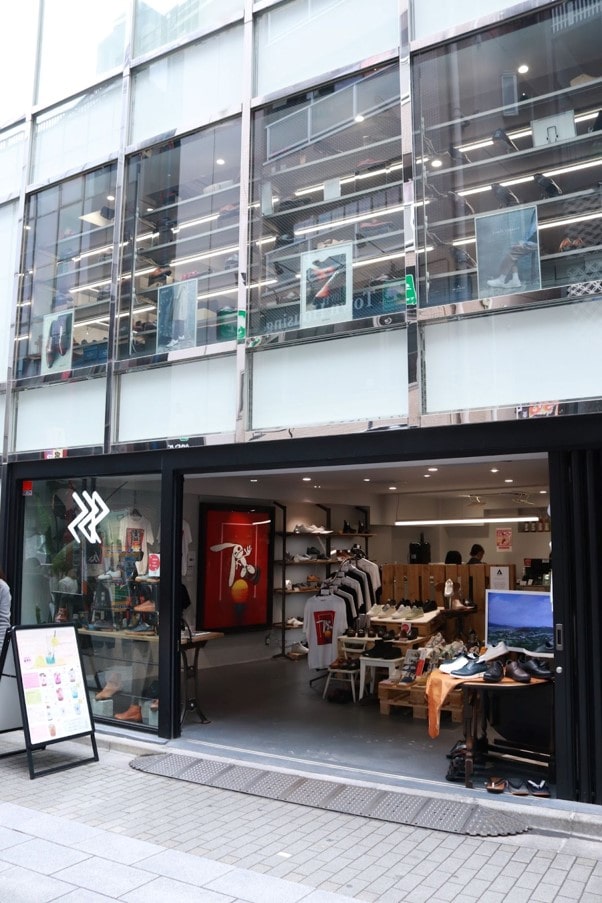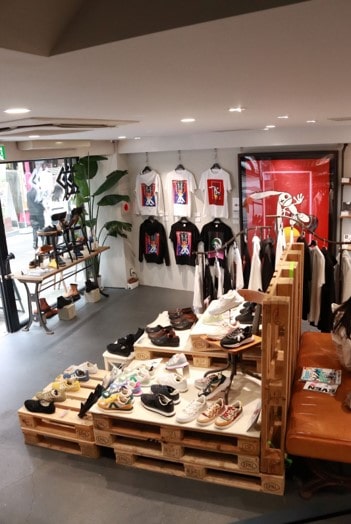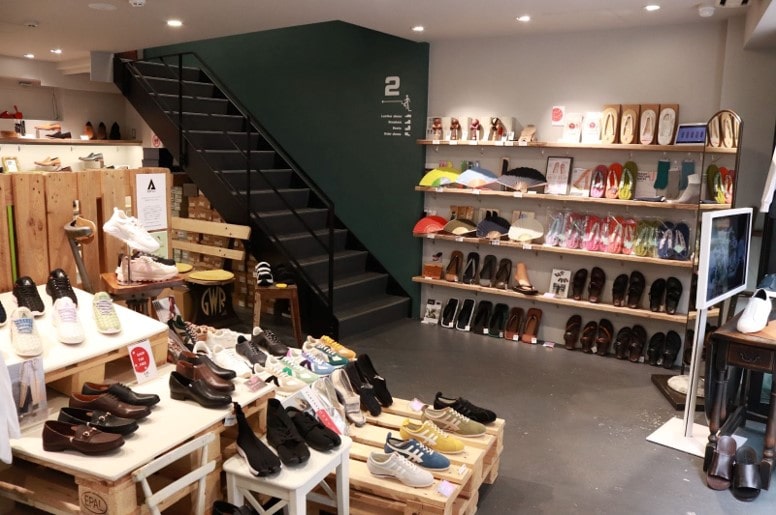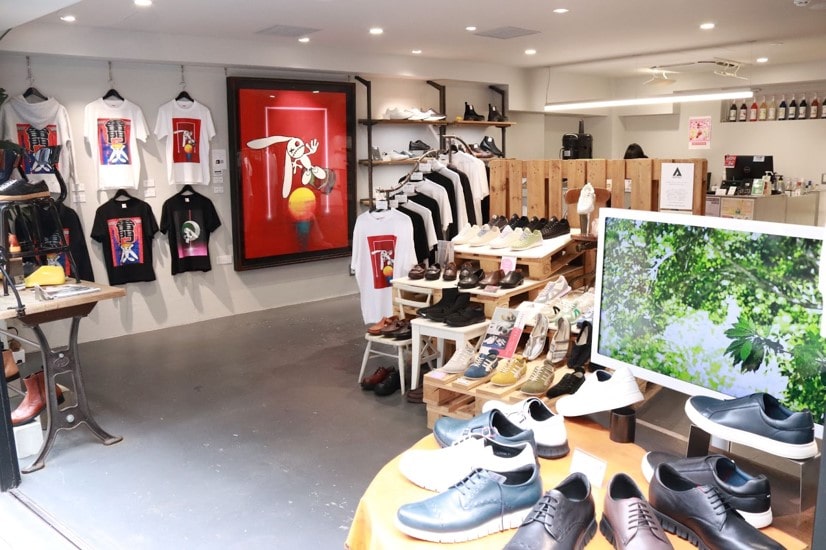2212 Asakusa by whoop-de-doo: Blending Tradition and Innovation in Japanese Footwear
Unveiling the Charm of Asakusa: The Unique Appeal of the whoop-de-doo Shoe Store
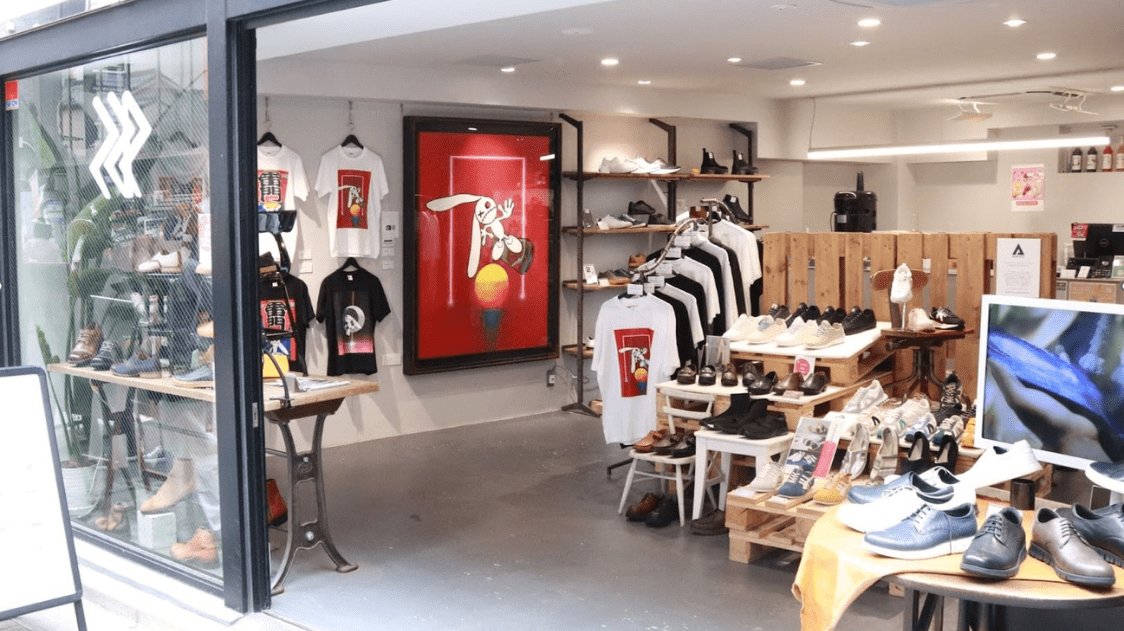
Asakusa, a district famed for its blend of Tokyo’s historical and traditional elements, is home to the city’s oldest temple, Senso-ji.
Frequented by Japanese and international visitors, Asakusa offers a tapestry of cultural experiences, from kimono rentals and rickshaw tours to savory street food.
Located in this vibrant neighborhood, steps from Asakusa Station stands an unconventional shoe store called 2212 Asakusa by whoop-de-doo. This store, known for its eye-catching design and unique approach, redefines the traditional shoe shopping experience, drawing in those who seek style with substance. Art and commerce merge seamlessly within its walls, making whoop-de-doo a must-visit destination for fashion-forward individuals.
What is whoop-de-doo
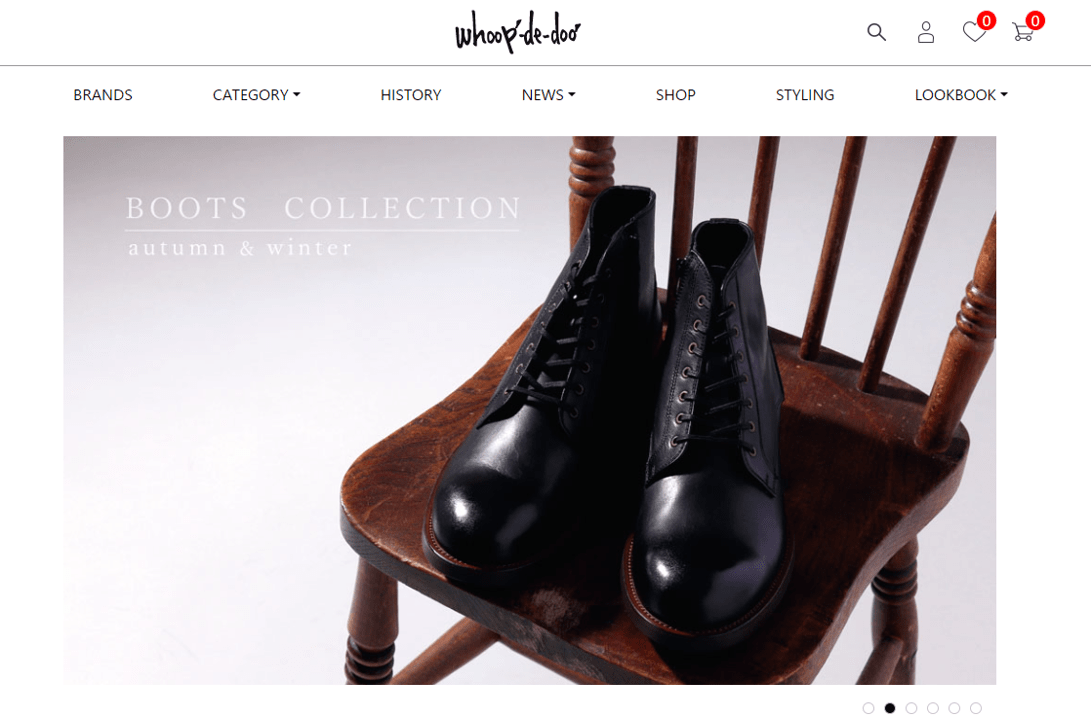
The production process begins with carving a wooden mold, followed by tanning and dyeing the leather. Unique techniques are repeatedly applied to both the upper and the sole, ensuring each pair of shoes showcases a distinct character and superior durability.
Furthermore, whoop-de-doo shoes incorporate innovative materials and ergonomic designs, enhancing both comfort and style. Whether you are observing them or wearing them, these shoes are designed to bring a sense of fun and sophistication to any ensemble.
The brand caters to a diverse customer base by offering a variety of styles, from formal to casual, each embodying quality and aesthetic appeal.
whoop-de-doo History
Fujiitsu Kato, born in Kamata, Tokyo, started his career in the family shoe business. Sensing a lack of stylish footwear for mature men, he launched his own shoe brand, whoop-de-doo, in 1985. The brand quickly became known for its innovative designs, which featured shoes crafted from a single piece of leather with random patterns and others combining various types of leather.
In 1987, Kato formally incorporated his business. By the 1990s, he expanded into importing and wholesale, particularly helping British boot brands enter the Japanese market. Kato continued to innovate, focusing on comfort and introducing gender-neutral designs.
His commitment extended to integrating Sustainable Development Goals (SDGs) into his business practices, emphasizing environmental and social responsibility. Whoop-de-doo is celebrated not only for its distinctive designs but also for its dedication to quality and sustainability, appealing to those who value both tradition and modernity in fashion.
whoop-de-doo Products
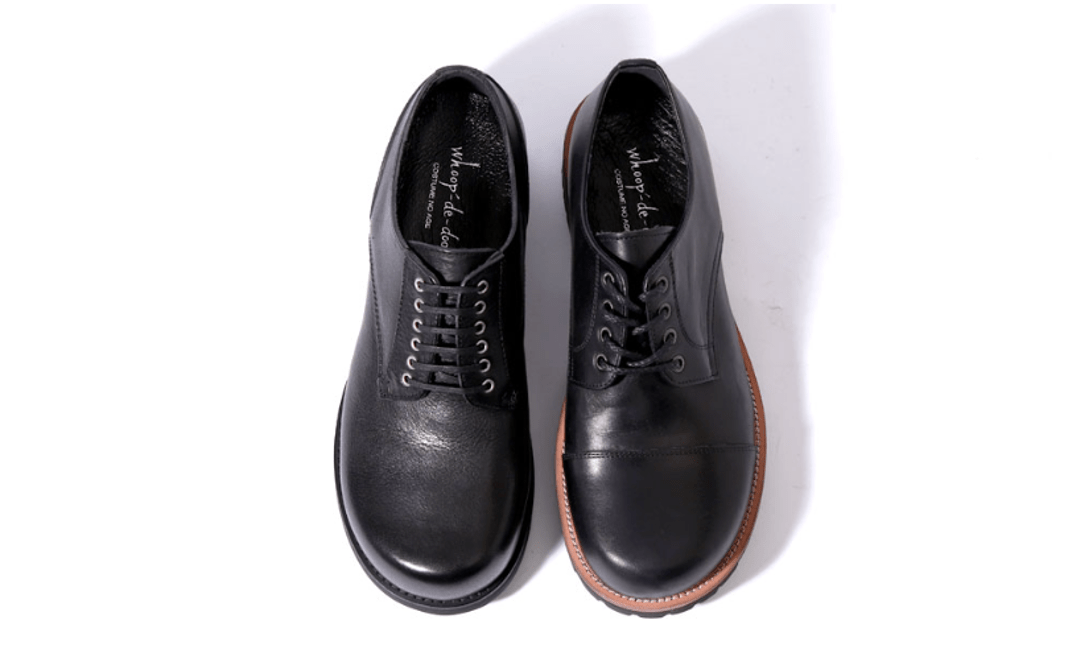
ODECO Shoes, known for their distinctive voluminous toes reminiscent of a ‘forehead’—hence the name ‘ODECO’ from the Japanese ‘おでこ’—is an iconic offering from the Whoop-de-doo brand.
First created in the 1990s, these shoes enjoy enduring popularity for their unique blend of cuteness and toughness. The latest update to this series introduces several enhancements.
The welt’s color—the sole’s edge—has been changed to black to match the sole, giving the shoes a more sophisticated look. The eyelet arrangement now features six holes with smaller grommets and closer spacing, contributing to a more delicate appearance. Waxed flat laces replace the previous style, and the outsole has been upgraded to an original processed rubber that is not too hard and is ideal for pairing with clean bottoms like slacks. The heel height remains 4.0 cm but features a flat pattern design that exudes calm elegance. The upper is crafted from thick, shrink-processed cowhide, offering durability while maintaining suppleness for a comfortable fit.
The new design maintains a modest sole volume and imparts a calm impression, perfect for those seeking a casually sophisticated vibe. Over the years, the subtle modifications in leather texture, eyelet number, placement, and shoelace types between models such as the classic and 2023 significantly altered the shoes’ character, making them versatile enough to be casual and refined.
2212 Asakusa store
The 2212 Asakusa store is a versatile shoe store that offers a wide range of products, from casual to dress shoes, and even includes made-to-order options.
This store is not only rich in artistic elements but also provides a selection of non-alcoholic cocktails and playful products, making it a beloved community-based space. It serves as a cultural hub in Asakusa, frequently hosting events and exhibitions that bring together local artists and shoe enthusiasts.
This integration of art, culture, and commerce creates a unique shopping experience that attracts both locals and tourists.
-2212 Asakusa store-
 Access Access |
Right next to "A4 Exit" of Asakusa Station (Asakusa Line) |
|---|---|
 Address Address |
2-19-6 Kaminarimon, Taito-ku, Tokyo |
 Business Hours Business Hours |
10:00~19:00 |
 Official Website Official Website |
https://2212shoes.com/ |
Also, if you go to the shop after reading this article and let the staff know you are visiting after reading this article, you’ll get a free sticker like the one below.
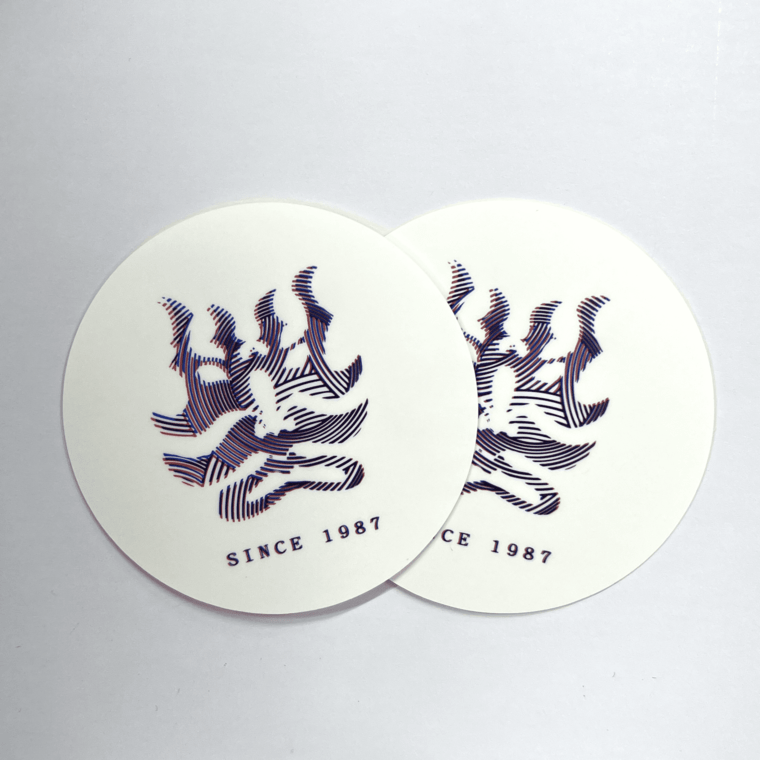
Other whoop-de-doo Stores
Five whoop-de-doo directly managed stores are located in Tokyo and Kanagawa. Here are the remaining four. If you happen to be near one of these stores, take this chance to visit them.
-whoop-de-doo Shinjuku Maruimen Store-
 Access Access |
3 minute walk from Shinjuku Sanchome Station (Tokyo Metro) E2 Exit |
|---|---|
 Address Address |
Shinjuku Maruimen 3F, 5-16-4 Shinjuku, Shinjuku-ku, Tokyo |
 Business Hours Business Hours |
11:00~20:00 |
-whoop-de-doo Yurakucho Marui Store-
 Access Access |
3 minute walk from Yurakucho Station (JR Lines) |
|---|---|
 Address Address |
Yurakucho Marui 6F, 2-7-1 Yurakucho, Chiyoda-ku, Tokyo |
 Business Hours Business Hours |
11:00~20:00 |
-whoop-de-doo Kitasenju Marui Store-
 Access Access |
4 minute walk from Kitasenju Station (JR Lines) |
|---|---|
 Address Address |
Kitasenju Marui 7F, 3-92 Senju, Adachi-ku, Tokyo |
 Business Hours Business Hours |
10:00~20:00 |
-whoop-de-doo Marui Family Mizonokuchi Store-
 Access Access |
6 minute walk from Mizonokuchi Station (JR Lines, Tokyu Lines) |
|---|---|
 Address Address |
Marui Family Mizoguchi 7F, 1-4-1 Mizonokuchi, Takatsu-ku, Kawasaki, Kanagawa |
 Business Hours Business Hours |
10:30~20:00 |
▽Subscribe to our free news magazine!▽
If you want more information about fashion in Tokyo, check out the following articles!
▽Related Articles▽
▼Editor’s Picks▼
Written by
Born and raised in Costa Rica, I started living in Tokyo from college. I love traveling within Japan & around the world. Since I wasn’t born in Japan, I know the cultural impact that you can get when visiting Japan for the first time and what you might be worried about before your trip. And I’ve lived long enough to somewhat understand the nuances of the Japanese culture that make this country such an attractive place to visit. Hopefully I can provide to you both the information you’re looking for and the information you didn’t know you needed to know.





